
Find Help
More Items From Ergsy search
-

Are there non-venomous spiders in the UK?
Relevance: 100%
-
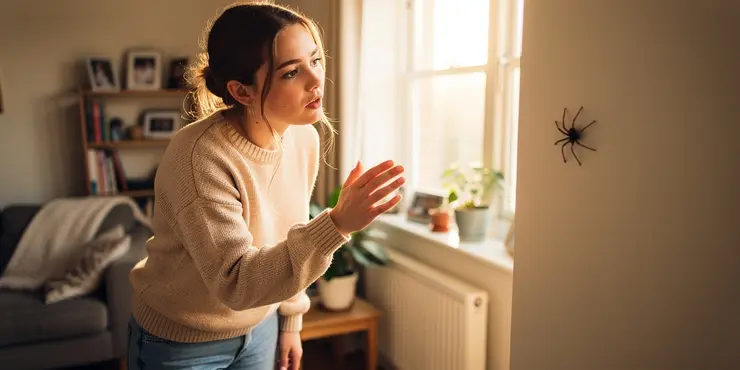
Are there any poisonous spiders in the UK?
Relevance: 48%
-
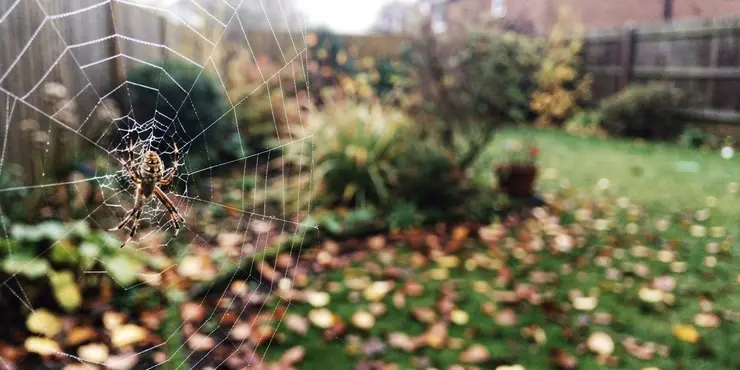
Are UK spiders venomous?
Relevance: 42%
-

Do spiders in the UK carry diseases?
Relevance: 40%
-
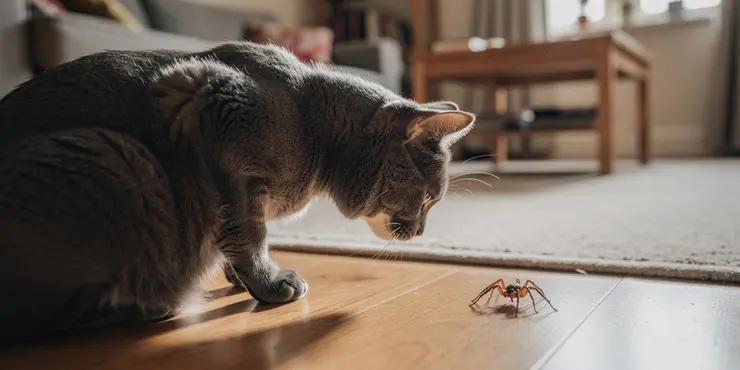
Do UK spiders pose a threat to pets?
Relevance: 39%
-
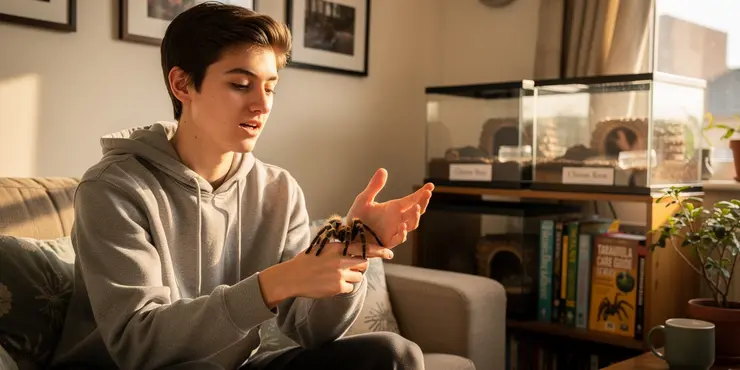
Can I keep a spider in the UK as a pet?
Relevance: 38%
-
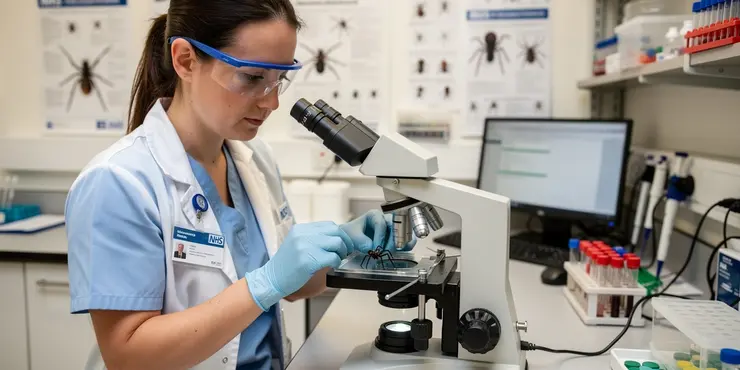
What is the most dangerous spider in the UK?
Relevance: 38%
-
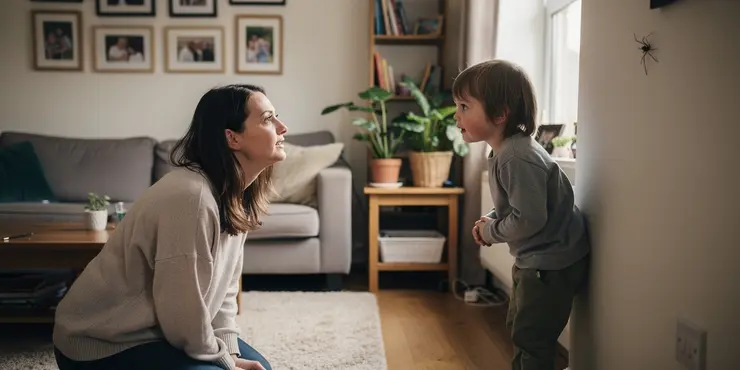
What should I do if I find a spider in my home?
Relevance: 37%
-
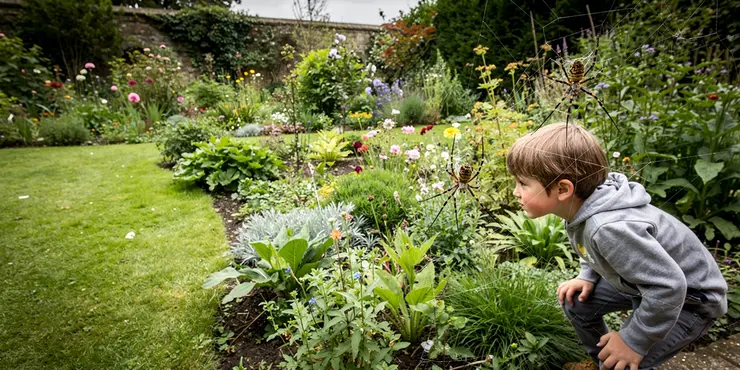
How big can spiders in the UK get?
Relevance: 37%
-

Which spiders in the UK can bite humans?
Relevance: 37%
-
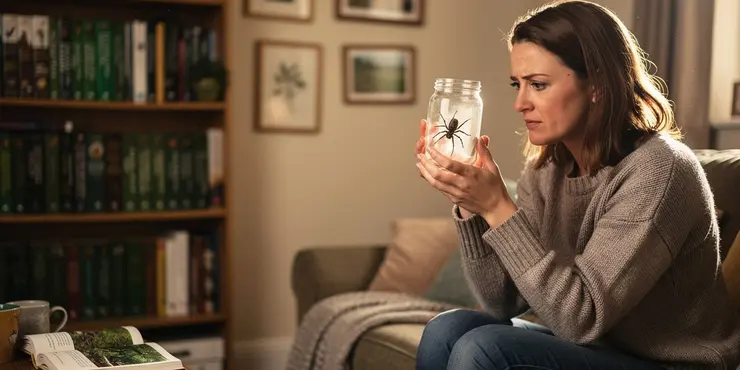
Can UK spiders cause allergic reactions?
Relevance: 37%
-
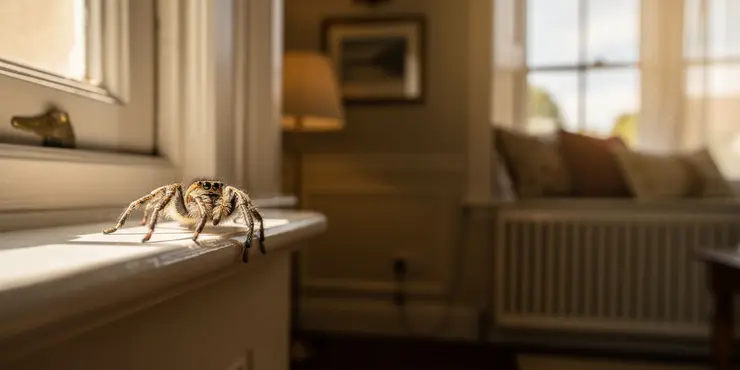
What are the benefits of having spiders in the home?
Relevance: 37%
-
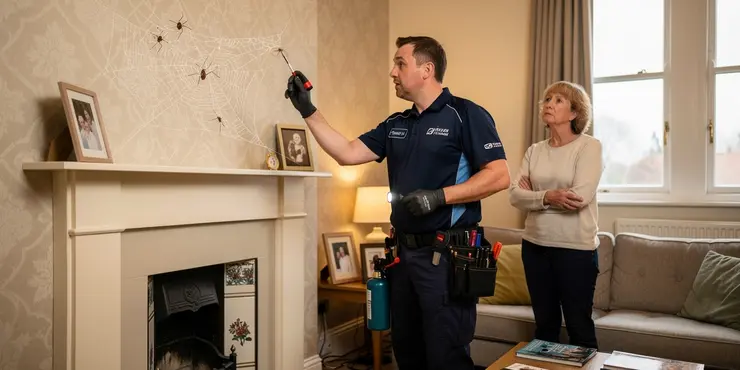
Is professional pest control needed for spiders?
Relevance: 37%
-
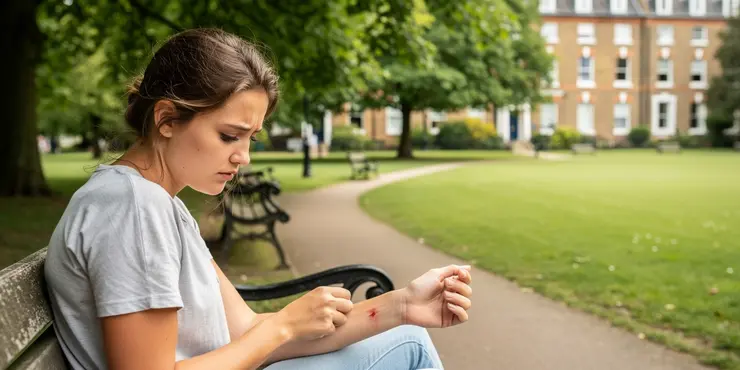
What should I do if I get bitten by a spider in the UK?
Relevance: 37%
-

How can I identify a false widow spider?
Relevance: 36%
-
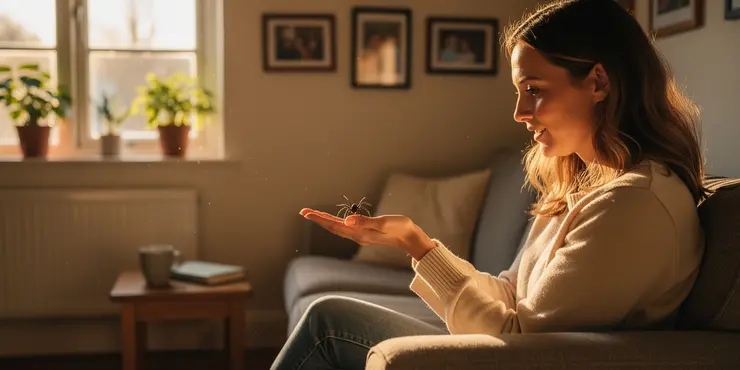
Is the bite from a false widow spider dangerous?
Relevance: 36%
-
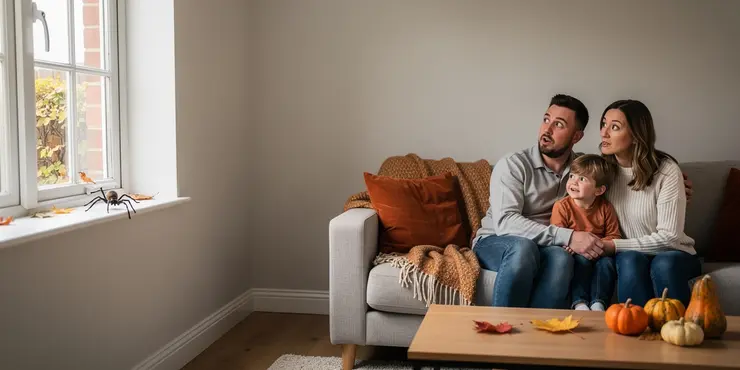
Why might there be more spiders in the home during autumn?
Relevance: 35%
-

How common are spider bites in the UK?
Relevance: 28%
-
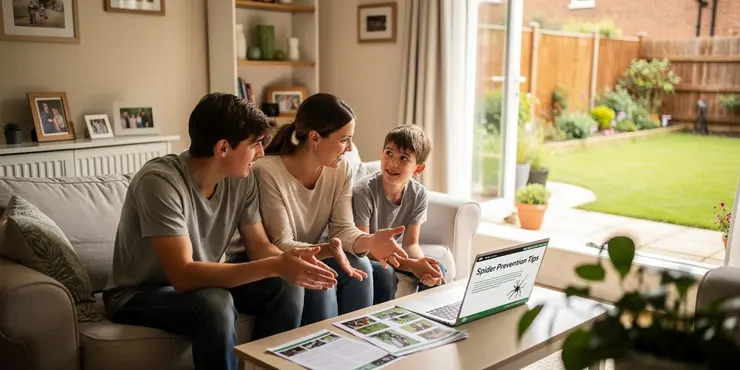
Are there any precautions to take against spiders in the UK?
Relevance: 26%
-
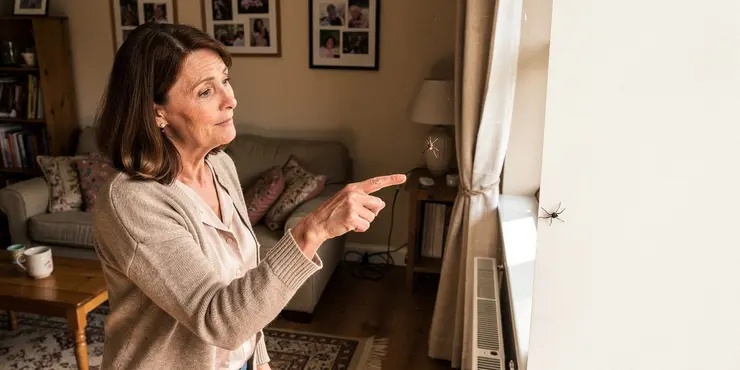
What types of spiders are commonly found in UK homes?
Relevance: 25%
-
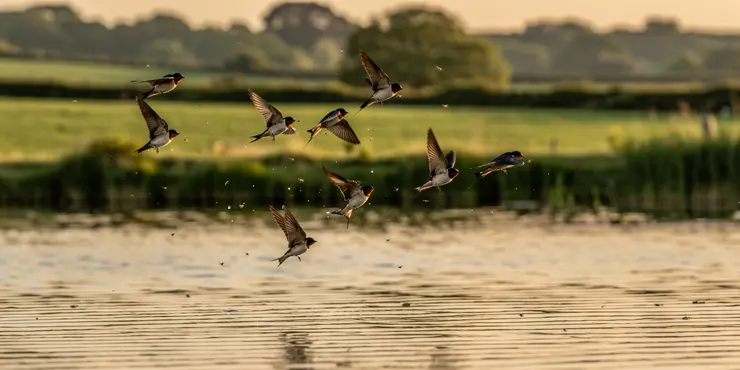
Are there any native mosquito predators in the UK?
Relevance: 12%
-

Think Pharmacy: Introduction for Bites and Stings
Relevance: 11%
-

Are Mosquito window screens effective?
Relevance: 6%
-
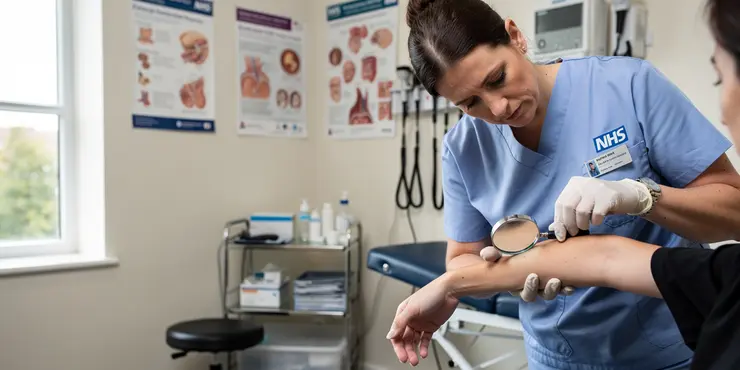
How long can mites live without a human host?
Relevance: 3%
Overview of Spiders in the UK
The United Kingdom is home to a wide variety of spider species, with more than 650 species documented. These arachnids play a crucial role in the ecosystem, helping to control pest populations and maintaining ecological balance. While the idea of encountering spiders might be unsettling for some, it is important to understand that the vast majority of spiders in the UK pose little or no threat to humans.
Non-Venomous vs. Venomous Spiders
Spiders are often categorized as venomous or non-venomous based on their potential harm to humans. Most spiders are technically venomous, as they possess venom glands used to subdue their prey. However, the term "venomous" in everyday language typically refers to creatures that can cause significant harm to humans through their bites. In this sense, there are many spider species in the UK that are considered non-venomous to humans because they pose no medical threat.
Common Non-Venomous Spider Species in the UK
Several common spider species in the UK are considered non-venomous to humans. The common house spider, for instance, is frequently encountered in homes and is harmless despite its sometimes intimidating appearance. Another example is the daddy long-legs spider, known for its long, thin legs. Despite urban legends suggesting otherwise, these spiders are incapable of causing harm to humans as their fangs are not strong enough to penetrate human skin.
The garden or orb-weaver spiders, notable for their intricate web patterns, are also largely non-venomous in the context of human interaction. They are more interested in trapping flies and other insects than in human interactions. Many of these spiders can be found in gardens throughout the UK, contributing to natural pest control.
Understanding Spider Bites
In the rare instance that a spider bite does occur in the UK, it typically results in only mild irritation, similar to a mosquito bite. There are a few species, such as the false widow spider, that can cause more discomfort, but serious reactions are exceedingly rare. Understanding that most spiders are not only harmless but also beneficial can foster a more tolerant perspective towards these misunderstood creatures.
Conclusion
While it is natural to feel uneasy about spiders, it is crucial to remember that the vast majority of UK spiders are harmless to humans. These arachnids are not only an integral part of the environment but also contribute significantly to our natural surroundings by managing pest populations. Embracing their presence can lead to a healthier and more balanced ecosystem.
Spiders in the UK
In the UK, there are more than 650 types of spiders. Spiders help nature by eating pests like flies. Most spiders in the UK are safe for people and do not harm us.
Safe Spiders vs. Dangerous Spiders
All spiders have venom to catch food, but not all can hurt people. When we say a spider is "venomous," we mean it can hurt people. In the UK, most spiders do not make people sick and are safe.
Common Safe Spiders in the UK
Many spiders in the UK are safe. The common house spider is often found in homes and won't hurt you. The daddy long-legs spider has long, thin legs and can't bite humans. Garden spiders make pretty webs and catch insects, not people. They help keep bugs away.
Spider Bites
Spider bites in the UK are very rare and usually feel like a mosquito bite. A few spiders, like the false widow, can make bites that are a bit sore, but this is not common. Knowing spiders are usually safe and helpful is important.
Conclusion
Spiders might seem scary, but most are safe and helpful. They help nature by eating pests. If we accept them, they help keep our world healthy and balanced.
Frequently Asked Questions
Are there non-venomous spiders in the UK?
Yes, there are many non-venomous spiders in the UK.
What is the most common non-venomous spider in the UK?
The common house spider is one of the most commonly found non-venomous spiders in the UK.
Do non-venomous spiders in the UK pose any threat?
Non-venomous spiders in the UK generally do not pose any threat to humans.
How can I identify non-venomous spiders in the UK?
Most non-venomous spiders in the UK can be identified by their small size and less intimidating appearance compared to their venomous counterparts.
Are garden spiders in the UK non-venomous?
Yes, garden spiders in the UK are non-venomous and harmless to humans.
Are all UK spiders non-venomous?
While most UK spiders are non-venomous or pose little risk to humans, there are a few that have venom but their bites are rarely harmful.
Why are non-venomous spiders considered harmless?
Non-venomous spiders either do not produce venom or their venom is not potent enough to affect humans significantly.
Do non-venomous spiders play a role in the ecosystem?
Yes, non-venomous spiders help control insect populations and serve as food for other wildlife.
Can non-venomous spiders bite humans?
While non-venomous spiders can bite if provoked, their bites are generally harmless and cause minimal discomfort.
What are examples of non-venomous spiders in the UK?
Examples include the common house spider, daddy longlegs, and money spider.
How can I safely remove non-venomous spiders from my home?
You can use a jar and a piece of paper to safely capture and release them outside.
Are daddy longlegs spiders non-venomous in the UK?
Yes, daddy longlegs spiders found in the UK are non-venomous and harmless.
Do non-venomous spiders have webs?
Yes, many non-venomous spiders spin webs to catch their prey.
How do non-venomous spiders defend themselves?
Non-venomous spiders often rely on camouflage and swift escape to avoid predators.
Are non-venomous spiders active year-round in the UK?
Non-venomous spiders are more active in warmer months but can be found indoors throughout the year.
Can children safely handle non-venomous spiders?
While non-venomous spiders are not dangerous, it's best to observe them without handling to avoid stressing the spider.
How do I know if a spider is non-venomous?
Learning about common non-venomous species and their characteristics can help in identifying them.
Do non-venomous spiders eat other spiders?
Some non-venomous spiders may eat other spiders or insects as part of their diet.
Is it beneficial to have non-venomous spiders in my garden?
Yes, they can help reduce pest populations by feeding on insects.
Are there any misconceptions about non-venomous spiders in the UK?
Some people may believe all spiders are dangerous, but most UK spiders are harmless and beneficial.
Do some spiders in the UK not have venom?
Yes, some spiders in the UK do not have venom. Venom is something that some spiders use to catch their food. But not all spiders have it.
If reading is hard, you can ask someone to help you. You can also use a tool that reads out loud to you.
Yes, there are many spiders in the UK that are not dangerous. They can't hurt you.
Which is the most common safe spider in the UK?
The common house spider is a spider that many people see in their homes in the UK. This spider is safe because it does not have any poison.
Are spiders in the UK that don't have venom dangerous?
Most spiders in the UK are not dangerous. They can't hurt people. They don't have venom that is harmful to us.
If you see a spider, it's best to leave it alone. Some people use a glass and paper to safely move spiders outside.
If you want to know more about spiders, you can use picture guides or apps to learn in a fun way.
Spiders in the UK that don't have venom are usually safe for people.
How can I tell if a spider in the UK is safe?
Many spiders in the UK are not dangerous. Here is how you can tell if a spider is safe:
- Look at the size and shape. Many safe spiders are small.
- Check the colors. Safe spiders often have dull colors.
- Notice the web. Some safe spiders make round, flat webs.
If you are unsure, try these tips:
- Ask an adult for help.
- Use a picture book or app to match the spider.
- Look online for safe spider pictures.
Remember, most spiders in the UK will not harm you.
Most spiders in the UK are not dangerous. These spiders are small and look less scary than the dangerous ones.
Are garden spiders in the UK harmful?
Yes, garden spiders in the UK do not have poison that can hurt people. They are safe for humans.
Are all UK spiders safe?
Most spiders in the UK are safe. They don't hurt people. But some spiders can bite.
Here are some tips to learn more about spiders:
- Look at pictures of spiders to know what they look like.
- Use a magnifying glass to see them better.
- Ask an adult or look online for more facts about spiders.
Remember, spiders help by eating other bugs!
Most spiders in the UK are safe and won't hurt you. Some spiders do have venom, but their bites almost never cause harm to people.
Why are spiders without venom safe?
Spiders without venom do not have poison. This means they cannot hurt you with bites. So, they are safe.
If you want help reading, you can try:
- Using a ruler or finger to follow the words.
- Asking someone to read with you.
- Using audiobooks or reading apps.
Most spiders do not have poison that can hurt people. Some do not have any poison at all. Others have poison, but it is too weak to hurt humans.
Do harmless spiders help nature?
Yes, harmless spiders are important in nature.
Spiders eat bugs. This helps keep nature healthy.
Some spiders build webs to catch bugs.
Spiders are food for other animals, like birds.
Spiders help plants grow by eating insects that harm them.
When bugs are controlled, it helps farmers grow more food.
To learn more, try using picture books or videos about spiders.
Yes, spiders that are not poisonous help by eating lots of bugs. They are also food for other animals.
Can spiders that are not poisonous bite people?
Most spiders do not have venom. They might bite if they feel scared, but their bites usually don't hurt much and are not dangerous.
Which spiders in the UK are safe and not venomous?
Here are some spiders you might know:
- House Spider
- Daddy Longlegs
- Money Spider
You can learn more about these spiders by looking at books or using the internet with the help of a grown-up.
How can I safely take out harmless spiders from my home?
You might see spiders in your house. Most spiders are not dangerous. Here's how you can take them out safely:
1. Use a cup and paper: Carefully place a cup over the spider. Slide paper under the cup. Take the cup and paper outside and let the spider go.
2. Get a spider catcher tool: This is a special tool with a long handle. It helps you catch spiders without touching them. You can find these online or in stores.
3. Keep your home clean: Spiders like dark, messy places. Clean up and remove clutter to keep spiders away.
4. Use natural sprays: Some sprays made from peppermint or vinegar can keep spiders away. Spray these around doors and windows.
If you find it hard to read or understand, ask someone to help you. You can also use apps that read text out loud or change text size to make it easier to read.
You can catch them safely using a jar and a piece of paper. Then, let them go outside.
Are daddy longlegs in the UK safe?
Daddy longlegs are a type of spider. In the UK, they are not dangerous. They have a tiny bite, but it won't hurt people.
You can use a magnifying glass to look at them closely. Using a picture book can help you learn more about these spiders.
Yes, daddy longlegs spiders in the UK are not poisonous and they won't hurt you.
Do all spiders make webs?
Some spiders are not dangerous. They don't have venom. But do they still make webs? Let's find out!
If you find long words hard to read, try breaking them into smaller parts.
Yes, lots of spiders that are not poisonous make webs to catch their food.
How do harmless spiders stay safe?
Some spiders do not have poison to protect themselves. They use other ways to stay safe:
- Hide: Spiders often hide to avoid danger. They might hide under leaves or in small spaces.
- Color: Some spiders have colors that blend with their surroundings. This helps them stay hidden.
- Run away: If they see danger, they might run away quickly.
- Make webs: Some spiders build webs to watch for danger and trap food.
Using pictures or video can help you learn more about how spiders protect themselves.
Spiders that don't have venom try to hide from animals that want to eat them. They use colors to blend in and run away quickly.
Do non-venomous spiders come out all year in the UK?
Non-venomous spiders are spiders that cannot hurt you with poison.
In the UK, these spiders do not stay hidden. They come out all year. You can see them in every season: spring, summer, autumn, and winter.
If you want to learn more about spiders, try looking at a picture book or asking a grown-up to read with you. You can also use a magnifying glass to see spiders up close safely.
Spiders that are not dangerous are more busy when it is warm outside. But you might still see them inside your house all year round.
Here are some tips to help understand this better:
- Weather Note: Spiders like warm weather!
- Be Calm: Most spiders are not harmful.
- Year-Round: Spiders can hide in your house any time.
Tools that can help:
- Flashlight: To look for spiders in dark places.
- Magnifying Glass: To see spiders better.
- Picture Book: To learn about different spiders.
Is it safe for kids to touch non-poisonous spiders?
Spiders that don't have poison are not scary. But it's better to look at them and not touch them, so they don't get upset.
How can I tell if a spider is safe?
If you see a spider, you might wonder if it is safe or not. Here are some tips to help you:
- Look at the spider’s colors and patterns. Some safe spiders have bright colors or special patterns.
- Think about where you found it. Safe spiders often live in gardens and houses.
- Ask an adult or use a picture book to learn more about spiders.
- You can also use phone apps that help you identify spiders.
If you are still unsure, it is best to stay away from the spider.
Learning about types of animals that are not poisonous and what they look like can help you know what they are.
Do spiders that are not poisonous eat other spiders?
Some spiders that are not poisonous like to eat other spiders or bugs. This is part of what they eat to stay alive.
Are non-venomous spiders good for my garden?
Yes, they can help get rid of bugs by eating them.
Do people have wrong ideas about spiders in the UK that don't have venom?
Some people think all spiders are scary. But most spiders in the UK are safe and helpful.
Useful Links
This website offers general information and is not a substitute for professional advice.
Always seek guidance from qualified professionals.
If you have any medical concerns or need urgent help, contact a healthcare professional or emergency services immediately.
Some of this content was generated with AI assistance. We’ve done our best to keep it accurate, helpful, and human-friendly.
- Ergsy carfully checks the information in the videos we provide here.
- Videos shown by Youtube after a video has completed, have NOT been reviewed by ERGSY.
- To view, click the arrow in centre of video.
- Most of the videos you find here will have subtitles and/or closed captions available.
- You may need to turn these on, and choose your preferred language.
- Go to the video you'd like to watch.
- If closed captions (CC) are available, settings will be visible on the bottom right of the video player.
- To turn on Captions, click settings .
- To turn off Captions, click settings again.
More Items From Ergsy search
-

Are there non-venomous spiders in the UK?
Relevance: 100%
-

Are there any poisonous spiders in the UK?
Relevance: 48%
-

Are UK spiders venomous?
Relevance: 42%
-

Do spiders in the UK carry diseases?
Relevance: 40%
-

Do UK spiders pose a threat to pets?
Relevance: 39%
-

Can I keep a spider in the UK as a pet?
Relevance: 38%
-

What is the most dangerous spider in the UK?
Relevance: 38%
-

What should I do if I find a spider in my home?
Relevance: 37%
-

How big can spiders in the UK get?
Relevance: 37%
-

Which spiders in the UK can bite humans?
Relevance: 37%
-

Can UK spiders cause allergic reactions?
Relevance: 37%
-

What are the benefits of having spiders in the home?
Relevance: 37%
-

Is professional pest control needed for spiders?
Relevance: 37%
-

What should I do if I get bitten by a spider in the UK?
Relevance: 37%
-

How can I identify a false widow spider?
Relevance: 36%
-

Is the bite from a false widow spider dangerous?
Relevance: 36%
-

Why might there be more spiders in the home during autumn?
Relevance: 35%
-

How common are spider bites in the UK?
Relevance: 28%
-

Are there any precautions to take against spiders in the UK?
Relevance: 26%
-

What types of spiders are commonly found in UK homes?
Relevance: 25%
-

Are there any native mosquito predators in the UK?
Relevance: 12%
-

Think Pharmacy: Introduction for Bites and Stings
Relevance: 11%
-

Are Mosquito window screens effective?
Relevance: 6%
-

How long can mites live without a human host?
Relevance: 3%


